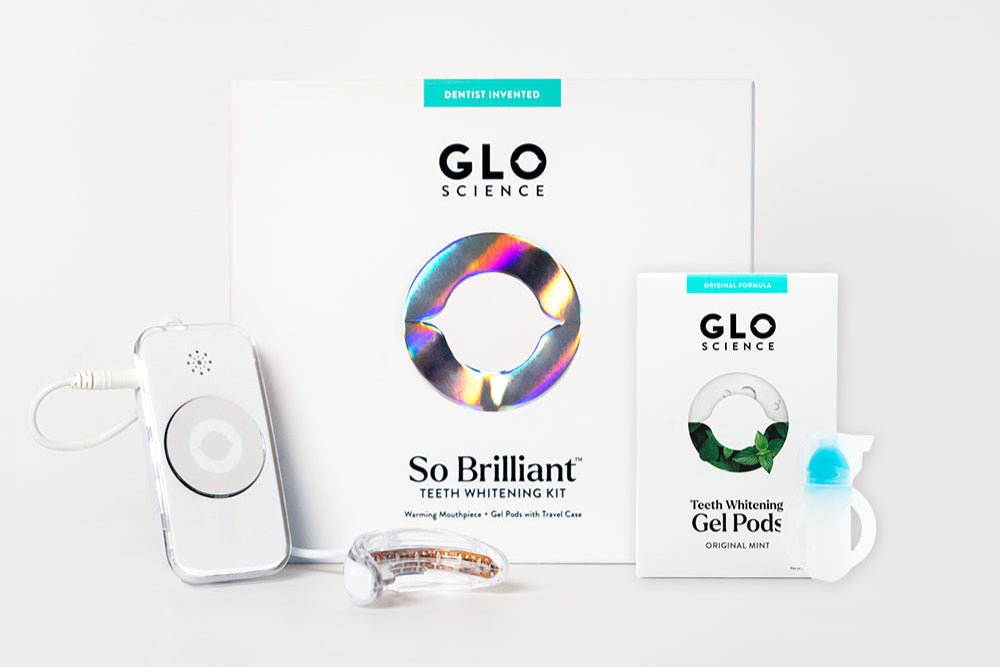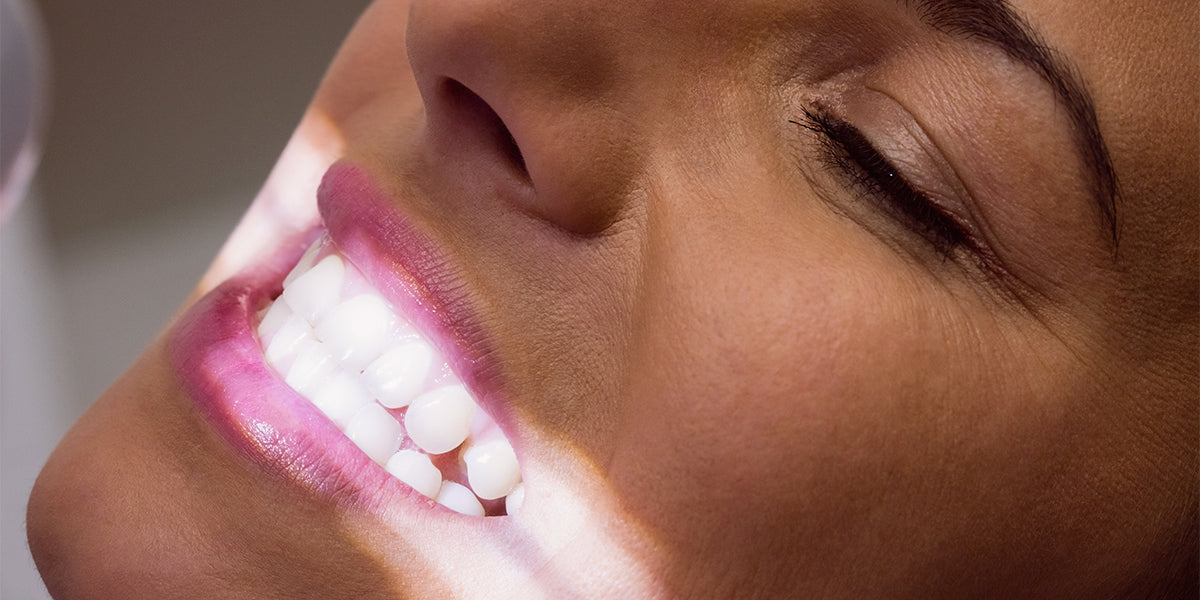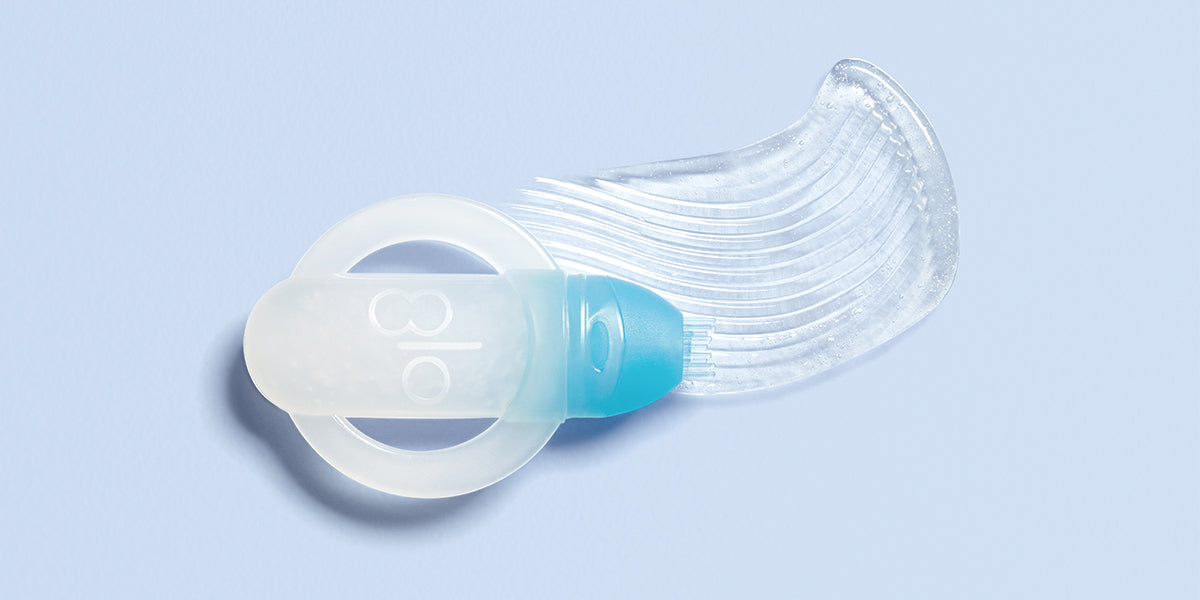
Carbamide Peroxide for Teeth Whitening: A Complete Guide
We all know the familiar brown bottle of hydrogen peroxide in our medicine cabinets. This powerful disinfectant is also the key ingredient in most teeth-whitening products, both at home and in the office. But have you heard of its close cousin, carbamide peroxide? This lesser-known compound is another popular choice for teeth whitening and has various applications in the pharmaceutical world.
Choosing the right teeth whitening treatment involves understanding the differences between these two common ingredients. While both hydrogen peroxide and carbamide peroxide can whiten your teeth, they have some subtle differences.
This blog post delves deep into the world of carbamide peroxide teeth whitening, exploring its uses, how it works for teeth whitening, its potential side effects, and when it might not be the best choice for you.
What is Carbamide Peroxide?
Carbamide peroxide is a chemical compound composed of hydrogen peroxide and urea. Hydrogen peroxide is the key whitening agent, while urea acts as a stabilizing agent, allowing for a gradual release of the active ingredient and a longer shelf life.
It is a white, crystalline solid readily soluble in water. It is a powerful oxidizing agent in its pure form, meaning it can break down other chemical compounds. This property makes it useful in various applications, including teeth whitening.
Carbamide Peroxide in Teeth Whitening
Carbamide peroxide is used for teeth whitening in various concentrations. Over-the-counter products like whitening strips and gels typically contain lower percentages (around 10%) compared to professional treatments that can utilize higher concentrations (up to 40%).
Other Uses of Carbamide Peroxide
Thanks to the hydrogen peroxide oxidizing and disinfecting properties, carbamide peroxide is used in many cosmetic and pharmaceutical products. It can be used as:
- Antiseptic and Disinfectant: Carbamide peroxide exhibits antiseptic properties, making it useful in wound cleaning and disinfection and a valuable component in some mouthwashes.
- Acne Treatment: Certain acne medications utilize carbamide peroxide as an active ingredient due to its ability to kill bacteria and reduce inflammation associated with acne breakouts.
- Earwax Removal: Carbamide peroxide-based ear drops soften and remove earwax buildup.
How Carbamide Peroxide Whitens Teeth
Carbamide peroxide teeth whitening works through a chemical reaction called oxidation. When it comes into contact with water, it breaks down into hydrogen peroxide and urea. The hydrogen peroxide then penetrates the tooth's outer layer (enamel) and initiates the oxidation process.
This oxidation reaction releases water and oxygen, breaking down the bonds of the compounds responsible for tooth discoloration. It transforms these colored stain molecules into less visible byproducts, which, in turn, makes your teeth appear whiter.
Is Carbamide Peroxide Safe?
Carbamide peroxide teeth whitening is generally considered safe when used as directed in over-the-counter teeth whitening products. Research has shown that a 35% concentration of carbamide peroxide can deliver significant whitening results without side effects. However, it's crucial to follow the manufacturer's instructions and be aware of potential side effects:
Side Effects of Carbamide Peroxide
While carbamide peroxide is generally safe, some individuals may experience the following side effects:
Tooth Sensitivity
Temporary tooth sensitivity is the most common side effect of carbamide peroxide, especially with higher concentrations. The effectiveness of carbamide peroxide whitening depends on the concentration and treatment duration. The longer the carbamide peroxide stays in contact with your teeth, the more pronounced the whitening effect.
However, it's important to note that longer exposure times can also lead to increased tooth sensitivity. One study found that patients who used carbamide peroxide for 8 hours (overnight) experienced higher sensitivity than those who used it for shorter durations.
Therefore, finding the right balance between concentration and treatment time is crucial for achieving optimal whitening results while minimizing potential discomfort. Mostly, this sensitivity typically subsides within days after discontinuing treatment or using desensitizing toothpaste.
Gum Irritation
Carbamide peroxide can irritate the gum tissue, especially if the whitening trays used for the application don't fit snugly or if the whitening solution comes into direct contact with your gums. This can lead to temporary discomfort, redness, and inflammation. To minimize gum irritation, ensure your whitening trays fit properly and avoid prolonged contact of the solution with your gums.
Contraindications and Cautions with Carbamide Peroxide
High concentrations of carbamide peroxide can be corrosive and harmful to the skin, eyes, and respiratory system. Therefore, careful handling is crucial. While safe, carbamide peroxide teeth whitening is not recommended for everyone. Here are some contraindications and cautions to consider:
- Children: Dental professionals usually advise against teeth whitening for children under 14-16 years old, as their teeth are still developing.
- Pregnancy: Pregnancy can cause several changes in oral health, including gum inflammation, so it’s best to avoid whitening treatments during this period.
- Sensitive teeth or gums: Individuals with pre-existing tooth sensitivity or gum problems should consult their dentist before using carbamide peroxide whitening products.
To sum it up, if you’re still wondering, “Does carbamide peroxide work?” the short answer is yes. Carbamide peroxide teeth whitening is a safe and effective ingredient commonly used in teeth whitening products. By understanding its properties, how to use carbamide peroxide, and its potential side effects, you can make informed decisions about choosing carbamide peroxide for your whitening routine. Consult your dentist before starting any whitening treatment is essential, especially if you have existing dental problems, to ensure optimal results and minimize potential risks.







